
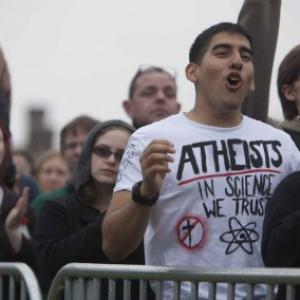
In recent surveys, the religious “nones” — as in, “none of the above” — appear to lead in the faith marketplace. In fact, “none” could soon be the dominant label U.S. adults pick when asked to describe their religious identity.
And, researchers say, this is already making nones’ attitudes and opinions less predictably liberal on social issues.

A couple years ago, a survey found that one in five Americans don’t identify with any religion. For Americans under 30, the number was far higher – more like one third. This report is being cited constantly throughout the religious-nonprofit world. In many quarters, there seems to be a deep sense of shock at the decline in religious membership.
Me? I’m not surprised at all. What does surprise me is our failure to see that affiliation with a traditional, God-centered religion is no longer the primary way that many Americans express their deeply rooted need for faith. We humans are relentlessly religious animals, and post-modern America is no exception. We’re just embracing a different kind of faith.
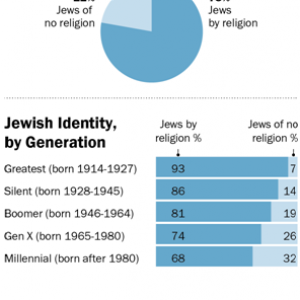
The top religion story of 2012 was the “rise of the ‘Nones’” — the one in five adults in the U.S. eschewing any religious label. That trend is now evidenced across the American religious spectrum, including in Jewish communities. About 22 percent of Jews now describe themselves as having no religion, according to a new Pew Research Center survey of U.S. Jews.
“Fully a fifth today of Jews in the United States are people who say they have no religion. They’re atheists, agnostics, or, the largest single subgroup, nothing in particular,” said Alan Cooperman, co-author of the study.
The trend of disaffiliation mimics that of other backgrounds, particularly by age. For example, 93 percent of Greatest Generation Jews (those born between 1914 and 1947) identified as being Jewish by religion, while only 68 percent of Millennial Jews (those born after 1980) say the same.
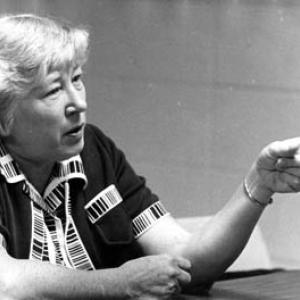
For someone who was once dubbed “the most hated woman in America,” Madalyn Murray O’Hair is getting a lot of love in this city she once called home.
Ten years after her mysterious disappearance in August 1995, the legacy of activist Madalyn Murray O’Hair still influences atheists in America today. She was known for her role in the landmark 1963 Supreme Court decision in Murray vs. Curlett, which, combined with Abington vs. Schempp, ended prayer in public schools across the U.S. and turned her into the self- described “most hated woman in America.” She is depicted here in a Religion News Service file photo from the 1970s.
New Jersey-based American Atheists, the group O’Hair founded here in 1963 to further the separation of church and state, is marking its 50th anniversary with a three-day convention that’s expected to draw more than 900 people in its former hometown.
This Easter, Teresa MacBain will mark an anniversary that’s uncommon for an ordained minister — her first year as an atheist.
Last March, MacBain, now 45, stood at a podium before hundreds of people in a Maryland hotel ballroom at the national convention of American Atheists and told them that, after a lifetime as a Christian and 15 years as a pulpit pastor, she had lost her faith.
Her coming out was national news, and she expected it would cost her her position as pastor of a United Methodist church, and she expected she might lose some friends and family members. In the last year, she has lost all those things.
But there have been gains, too, including a new career, the embrace of a new community that she had been taught to distrust and a newfound sense of confidence.

I’ve been reading with interest about the “nones” and the increasing number of people who identify themselves as SBNR — spiritual but not religious. Though I try not to get sucked down Internet rabbit holes, I have to admit this one’s got my number. I think it’s because I identify with both groups in some real ways.
Like many people I know, I stand in the gap.
As a Catholic Christian, I’ve watched countless friends and neighbors walk out of the church. Some linger at the door on their way out with a wistful look, wishing things could be different. Others hit the ground running and never look back. I understand both exit strategies and have been tempted to join them, but I haven’t, not yet. I am spiritual, but also still religious, albeit reluctantly so at times.
As much as I appreciate the conversations that are going on, we “religious” aren’t going to change anyone’s minds by talking about it, by beating our breasts, or wringing our hands. The “nones” aren’t going to walk back into church, because someone tells them they should, or because it would be good for them. Shoulds are rarely effective with adults and if churches were actually good for them, in some tangible way, the “nones” would still be there in the first place.
I think the only way for churches to reverse the exodus of the “nones” is by becoming different churches.

A new report on global religious identity shows that while Christians and Muslims make up the two largest groups, those with no religious affiliation — including atheists and agnostics — are now the third-largest “religious” group in the world.
The study, released Tuesday by the Pew Forum on Religion & Public Life, found that more than eight in 10 (84 percent) of the world’s 7 billion people adheres to some form of religion. Christians make up the largest group, with 2.2 billion adherents, or 23 percent worldwide, followed by Muslims, with 1.6 billion adherents, or 23 percent worldwide.
Close behind are the “nones” — those who say they have no religious affiliation or say they do not believe in God — at 1. 1 billion, or 16 percent. That means that about the same number of people who identify as Catholics worldwide say they have no religion.
“One out of six people does not have a religious identity,” said Conrad Hackett, a primary researcher and demographer on the study. “But it is also striking that that overwhelming majority of the world does have some type of religious identity. So I think people will be surprised by either way of looking at it.”

Last month, Lauren Anderson Youngblood, communications manager for the Secular Coalition for America, approached Broderick Johnson, a senior adviser to the Obama campaign, as they both left a conference on religion and the election.
The SCA is an umbrella group representing 11 nontheistic organizations. So who, Youngblood asked Johnson, could she reach out to with their concerns about civil rights, access to health care and education?
“He said, ‘We don’t view you as a constituency,’” Youngblood said. “He said, ‘We don’t do outreach to that community.’”
After Tuesday's election, that may soon change. According to a Pew Forum on Religion & Public Life study released last month, “nones” — those who say they have no religious affiliation or do not believe in God — are the fastest-growing faith group in America, at 20 percent of the population, or 46 million adults.
In addition, nationwide exit polls conducted Tuesday show that "nones" made up 12 percent of all voters — more than the combined number of voters who are Jewish, Muslim or members of other non-Christian faiths (9 percent), and only slightly smaller than the combined number of Hispanic Catholics and Black Protestants (14 percent).
Editor's Note: Sojourners has launched this new blog series to help shed light on the nation's latest "religious" affiliation. Go HERE to read their stories. Or EMAIL US to share your own.
PBS Religion & Ethics Newsweekly has wrapped up its three-part new mini-series on the rise of the unaffiliated. Go HERE to read more about this week's episode.
Watch None of the Above: Religious Implications on PBS. See more from Religion & Ethics NewsWeekly.
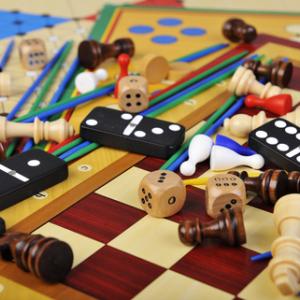
How do we find a job? How do we find work? Maybe we shouldn't worry so much...LEAN into what feeds you.
Get out beyond the castle walls. The Kingdom of God is not a castle. It's a kingdom.
Sometimes it is our friends who remind us there is this kingdom and there is this Christ...
And a lot for "The Nones" to chew on here, too.
See the latest Busted Stuff video inside...

It was December of 2000, but I remember the occasion as if it were yesterday.
It was a few days after Christmas during my senior year of college. I was quite nervous, and I wondered how my friends and family would react.
How would my basketball teammates respond? Would my roommates treat me differently? And of course, what about my girlfriend? She had no idea our relationship would take such a dramatic turn.
I could hide no longer. I had to be honest with who I was. And so, after a great deal of delay and long nights of nervous planning, I finally decided to share what I had been keeping secret.
Beginning with my girlfriend, then my parents, brother, sister, and eventually friends, roommates, and teammates, I shared the news: After a significant amount of prayer and discernment, I was no longer planning to attend law school following college graduation, but instead, I wanted to attend seminary in order to become an ordained Lutheran pastor.
As to be expected, I received mixed reactions.
My parents were confused and surprised, as they – like most people – had not perceived me as “religious”," especially not to the point of pursuing ordination. Nevertheless, they accepted the news with delight and affirmation.
In addition, my girlfriend (who is now my wife) was wonderfully supportive. So was my brother, sister, and closest friends.
On the other hand, some others were not sure how to react. My friends – mostly uninterested in religion – wondered about future plans. Basketball teammates were a bit uneasy. And even the campus priest and a few professors had an assortment of reactions. While a number of people were anxious and apprehensive, those within my closest circle of friends accepted the announcement with open arms.
I continue to thank God for such a wonderful web of support.

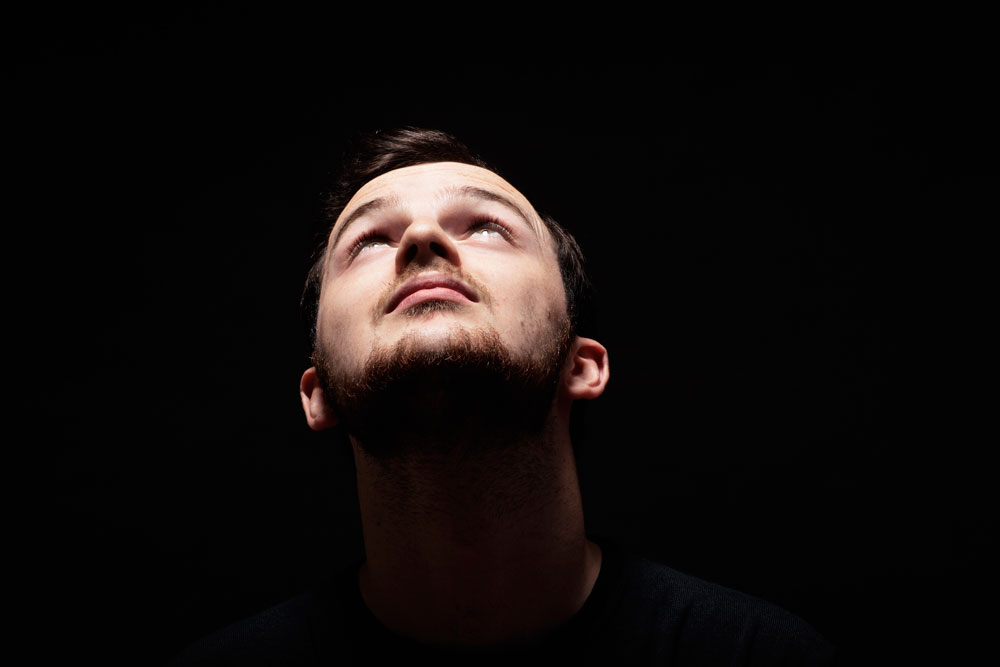 There has been much speculation about “the nones,” the increasing number of people who do not identify with any particular religious denomination. The poll, conducted by the Pew Research Center, shows that nearly one-fifth of all Americans and nearly one-third of young people under 30 are unaffiliated with a particular religion or denomination. There have been varying reactions. As Mark Tooley points out, this isn’t necessarily a crisis of faith in America; many “nones” still profess to believe in God or some ultimate being. The rise of the “nones” could then be pointing to a crisis in denominational loyalty.
There has been much speculation about “the nones,” the increasing number of people who do not identify with any particular religious denomination. The poll, conducted by the Pew Research Center, shows that nearly one-fifth of all Americans and nearly one-third of young people under 30 are unaffiliated with a particular religion or denomination. There have been varying reactions. As Mark Tooley points out, this isn’t necessarily a crisis of faith in America; many “nones” still profess to believe in God or some ultimate being. The rise of the “nones” could then be pointing to a crisis in denominational loyalty.
There are also those who wish to eschew the label of religious all together, seeing it as increasingly connected to political conservatism, homophobia, and sexism (according to the poll, a “none” is more likely to vote Democratic and affirm the legalization of abortion and same-sex marriage).
In one of an ongoing series of blog posts entitled “Meet the Nones," Alyssa Bain writes, “I am more and more hesitant to label myself Christian as I see traditional denominations come to the spotlight for being closely affiliated with so-called right-wing politics. Instead, I distance myself.”
I write today to add my two cents. The truth is for most of my life I was a “none." I’ve only been a professing Christian for a very short time and I was not raised in any particular religious tradition at all. Though I identify as Eastern Orthodox and have been going to Orthodox services for over a year now as a catechumen, I have not been formally received into the church and still await my baptism and chrismation (I have never been baptized in any denomination, even as an infant).
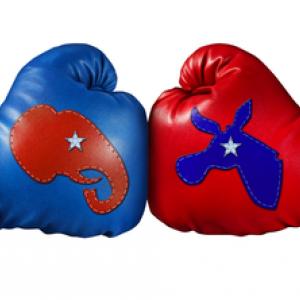
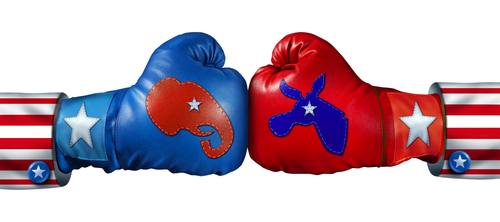 Monday night, I hit a new low. During the last presidential debate, I found myself arguing via Facebook about faith and politics … with a fellow pastor’s wife. Let’s just say, I managed to break each of Eugene Cho’s 10 commandments with my snark.
Monday night, I hit a new low. During the last presidential debate, I found myself arguing via Facebook about faith and politics … with a fellow pastor’s wife. Let’s just say, I managed to break each of Eugene Cho’s 10 commandments with my snark.
She who shall not be named suggested that anyone willing to support a certain candidate must be blind, stupid, or foolish. When I made it clear that I have prayed and reviewed the facts and would be supporting said candidate, I was told that my “prayers must not be backed by the Word of God.” I was then lambasted for my so-called "unbiblical" views. Oh, no she didn’t!
Aside from feeling personally attacked, I was more frustrated that this kind of bad theology remains in the church. It’s no wonder that more and more people of faith are identifying as the “nones”— or none of the above when it comes to religious beliefs. Who wants to be associated with Christianity — Protestant, Evangelical, Catholic, Orthodox, etc. — and the Church when they are often dominated by such judgmental people who dare to speak for God?

The largest slice of President Barack Obama’s religious coalition -- at 23 percent -- is not very religious.
They’re the “nones,” also known as unaffiliated voters, according to a new American Values Survey by the Public Religion Research Institute.
Gov. Mitt Romney’s biggest bloc of religious voters are white evangelical Protestants, at 37 percent, followed by white mainline Protestants and white Catholics, each at 19 percent. Comparing the candidates' supporters, the more diverse religious and nonreligious coalition that's favoring Obama tends to be younger and growing, which could make it easier for Democrats to win elections in the future.
But there’s a down side for Obama, said Dan Cox, PRRI’s research director.
“The people most likely to support him are the least likely to vote: Latinos, the millennials (voters 18-29), and the unaffiliated,” Cox said.

Editor's Note: Anne Marie Roderick tells her story of why she's NOT part of the 20 percent of Americans who identify with "no religion in particular." Find more stories (or share your own) HERE. Read about the study HERE.
It’s not surprising that a third of my peers say they are religiously unaffiliated. Our religious lives are too complex these days to fit in neat boxes with one-word labels. I may be a “Christian,” but does that mean that I am like other Christians? Not necessarily.
There is sometimes more truth in being a “none” — in stating what we are not — rather than trying to pin down exactly what we are. But, I choose to affiliate anyway. Here’s why I am not a “none:"
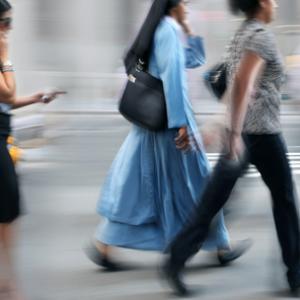
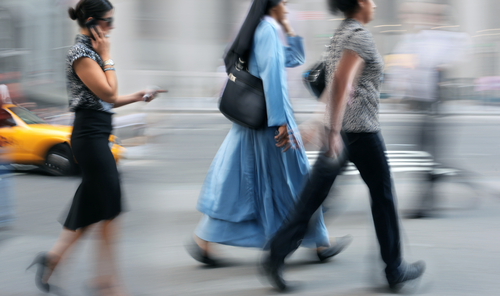
Editor's Note: Alyssa Bain tells her story of why she's part of the 20 percent of Americans who identify with "no religion in particular." Find more stories (or share your own) HERE. Read about the study HERE.
Last weekend I watched Sister Act (both of them, actually) with some friends (who also happen to be nuns)
I am not a nun. I am not a novice. I am not Catholic. Some days I wonder if I am even Christian.
According to a recent study by the Pew Forum, I actually just might be a “none.”
The research is out, and it seems that my generation is stumping the world as the generation that, for whatever reason, refuses to label itself.
Personally, I’ve been having trouble with labeling myself for quite some time. Lutheran. Non-denominational. Methodist. Universalist. Evangelical. Protestant.
But none of them quite fit right. The problem with labels is that there are always exceptions. Nothing is black and white. The label “none” lumps together atheists, agnostics, and, well, me. I am not an atheist. I might be kind of agnostic, but there really is just something about that Jesus guy.
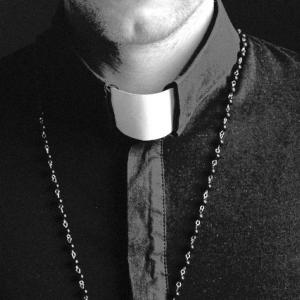
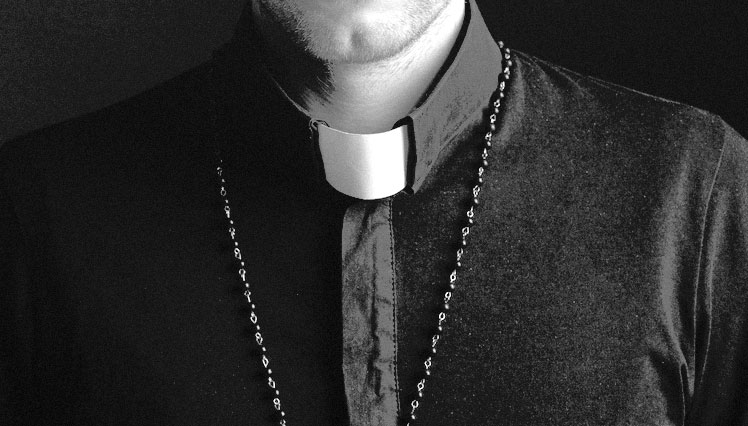 Editor's Note: Kevin Gonzaga tells his story of why he's part of the 20 percent of Americans who identify with "no religion in particular." Find more stories (or share your own) HERE. Read about the study HERE.
Editor's Note: Kevin Gonzaga tells his story of why he's part of the 20 percent of Americans who identify with "no religion in particular." Find more stories (or share your own) HERE. Read about the study HERE.
Three years ago when I arrived at seminary to pursue my calling to fulltime pastoral ministry, one would probably have struggled to find someone in my generation more committed to the ministry and vitality of the local church.
While imperfect, I believed the church was the best hope of the world, and it was better to stay and work toward change than abandon the church and look for greener pastures. A year and a half later, I wrote a blog post explaining that I was no longer a Christian. I fear that this would only deepen the stereotype that seminary is a place where people lose their faith, so I should explain.
The truth is I am one of growing number of people who choose not to affiliate with any organized religion. I am a “none,” and my journey to “none” started a long before I left for seminary. My disillusionment with, and eventual abandonment of, Christianity did not center around one traumatic event that shattered my faith, but rather it was something that coalesced from numerous experiences over a long time.
It really started when I began studying the scriptures for myself in college. I was shocked to find many things I had been taught by the Church were wrong, were not in the Bible, or were even contrary to what the scriptures actually taught.
Editor's Note: Sojourners has launched this new blog series to help shed light on the nation's latest "religious" affiliation. Go HERE to read their stories. Or EMAIL US to share your own.
PBS Religion & Ethics Newsweekly has launched a new mini-series on the rise of the unaffiliated. Go HERE to read more about this week's epidsode.
Watch None of the Above: Political Implications on PBS. See more from Religion & Ethics NewsWeekly.


Editor's Note: Megan Monaghan Rivas tells her story of why she's part of the 20 percent of Americans who identify with "no religion in particular." Find more stories (or share your own) HERE. Read about the study HERE.
There are never really two kinds of people in the world. But for purposes of this post, I’ll posit that there are two kinds of “nones” in the world – “nones” who would be part of a church if they could just find the right one, and “nones” who have no desire to be part of a church even if it matched them perfectly. I place myself in the latter category.
Like many “nones,” I started out as a “some.” I was reared in the Roman Catholic Church and educated in Catholic schools. As luck and the development curve would have it, just after confirmation (at age 14) I started finding out things about the church that I could not stand up and be counted for. The church’s policies concerning women and homosexuals seemed to me to stand in deliberate polar opposition to the Gospel message. And the church is not known for willingness to change from the inside. I didn’t have another 2,000 years to wait. My first “adult” move in the church was to leave it.
PBS Religion & Ethics Newsweekly has launched a new mini-series on the rise of the unaffiliated. Go HERE to learn more.
Watch None of the Above: Who Are They? on PBS. See more from Religion & Ethics NewsWeekly.
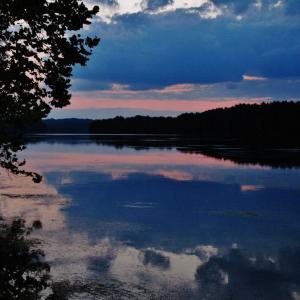
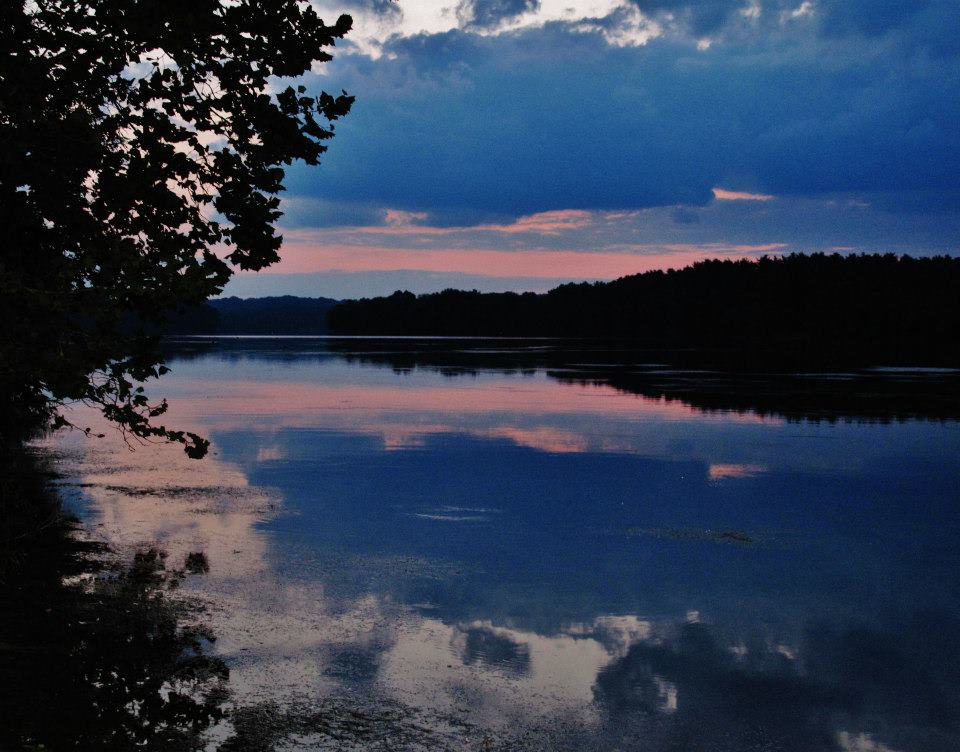
Editor's Note: Melissa Otterbein tells her story of why she's part of the 20 percent of Americans who identify with "no religion in particular."Find more stories (or share your own) HERE. Read about the study HERE.
A "recovering Evangelical," author Melissa identifies with the "nones" after church experiences in the non-denominational Church, Lutheran Church, Church of God, United Church of Christ, and the kind of Church that happens when you have hour-long conversations with people who are materially poor yet rich in spirit. Each of these "Churches" (and those not mentioned) depict Christ in beautiful ways, she believes, but feels that solely identifying with a denominational designation hasn't seemed to fully capture her faith experience. Though "none" might seem like a shocking response to "which religious tradition do you closely identify with?" it's one that, "offers freedom in Christ that brings me to closer to the Kingdom of God in the here and now."
I am tired of explaining away my faith.
I am tired of defending, “proving,” withholding my true feelings for fear of religious retaliation.
I’m tired of watching some people argue their faith, trying to “win people to Christ” with their cogent, convincing “answers.”
I’m tired of watching Jesus be sold, marketed, put on display.
I’m tired of watching certain people try to convince the world why their God is the right God.
I’m tired of listening to people deify their Bible by retorting this verse and that verse when our God is so much bigger than the sole medium of Genesis-Revelation.
I’m tired of platitudes about the Word and faith and sin and grace that I’ve heard over and over again; for every time I hear these trite remarks, I question if we’ve lost the unadulterated beauty behind such venerable passages.

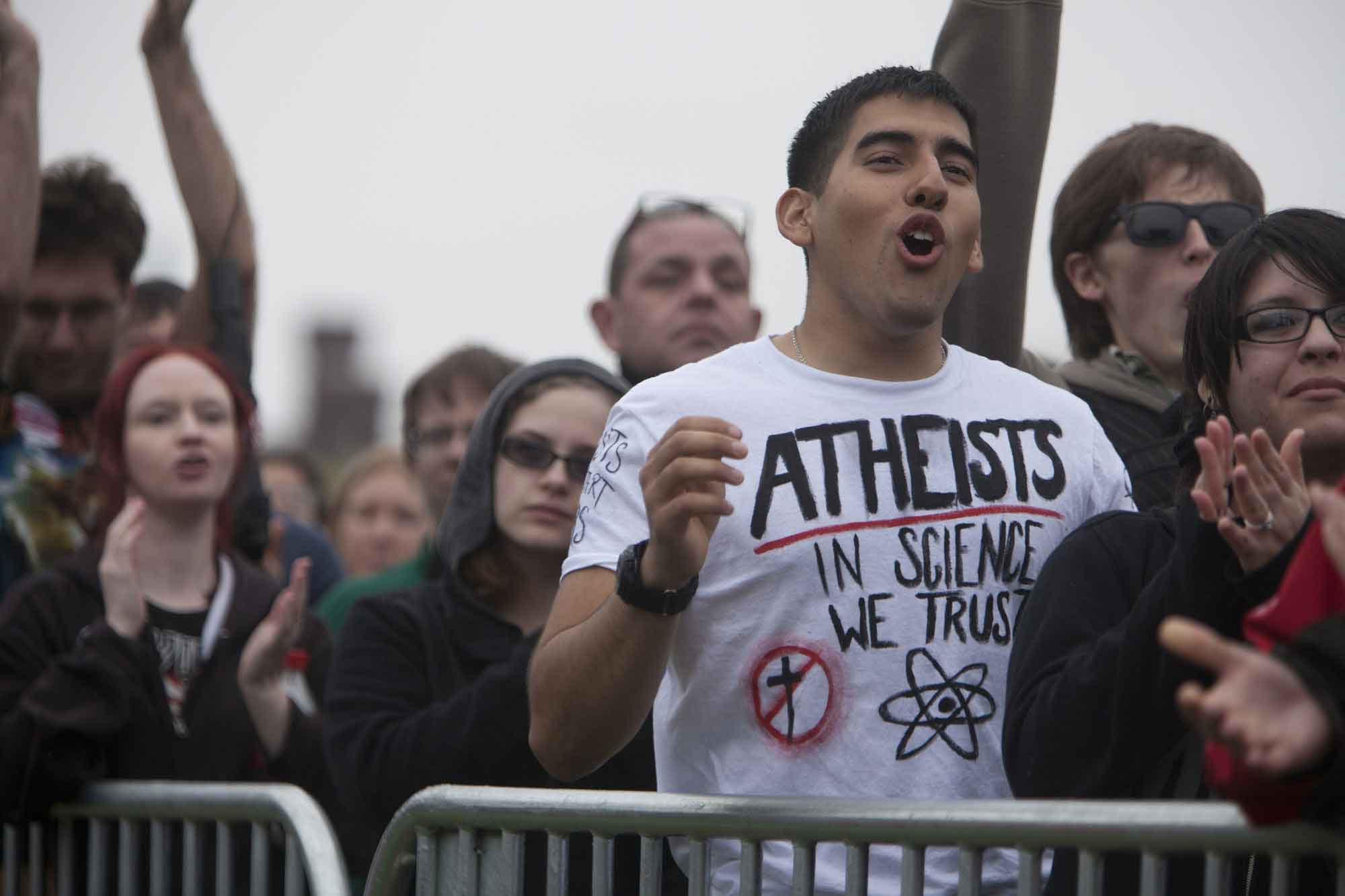 Meet John Q. Nones, a young, white male who is making a big impression on the American religious landscape for something he doesn't do: align with any religious group.
Meet John Q. Nones, a young, white male who is making a big impression on the American religious landscape for something he doesn't do: align with any religious group.
The rise of the religiously unaffiliated, or “nones,” as documented in a new study from the Pew Forum on Religion & Public Life, has major implications for almost all aspects of American life -- from religion to business to culture.
Whether you believe the proliferation of Mr. Nones is a depressing or hopeful trend, it pays to get to know him.
Who is John Q. Nones? Here's a snapshot drawn from the Pew Forum’s new poll.
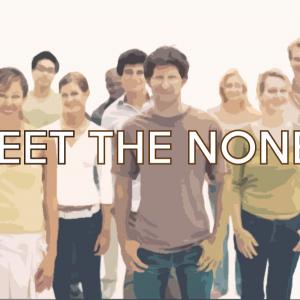
Editor's Note: Sojourners has launched this new blog series to help shed light on the nation's latest "religious" affiliation. Scroll down to read their stories. Or EMAIL US to share your own.
Which religious tradition do you most closely identify with?
- Protestant
- Catholic
- Mormon
- Muslim
- Jewish
- Orthodox
- Other Faith
- Unaffiliated
Given these options — or even if you throw in a few more like Buddhist, Hindu, Agnostic — I would choose “Unaffiliated.” That puts me into a category with one-in-five other Americans, and one-in-three millennials, aptly named the “nones.”
In that vein, I introduce our new blog series: Meet the Nones. Through this series, I hope to encourage discussion, debate, and elucidate the full picture of what it means to be losing your religion in America.
Editor's Note: Would you like to share your story on this topic? Email us HERE.